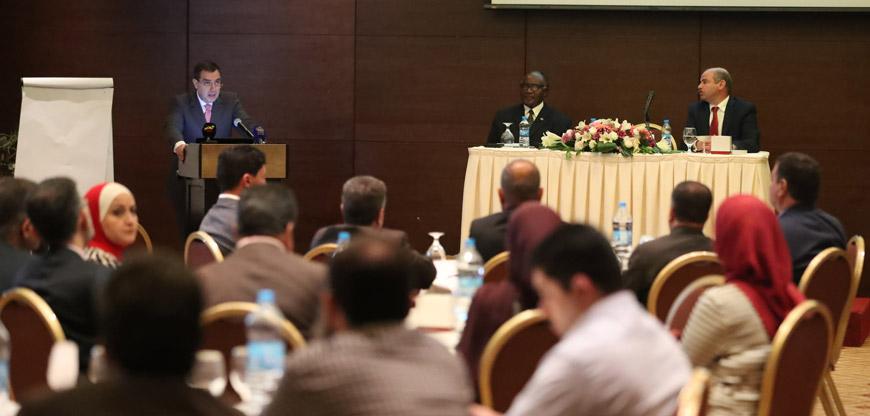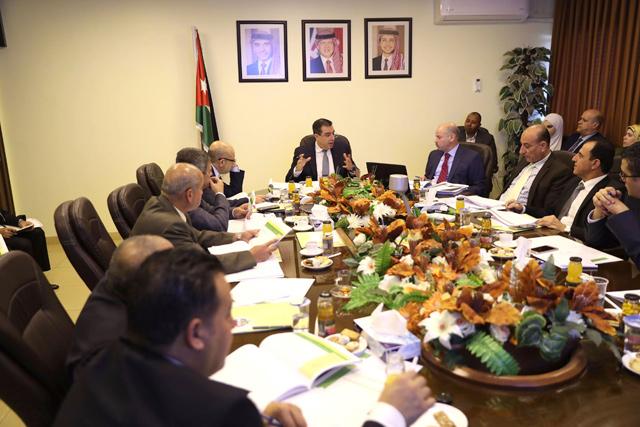You are here
National strategy seeks to improve collection of statistical data
By Dana Al Emam - Jul 02,2017 - Last updated at Jul 02,2017

Minister of Planning and International Cooperation Imad Fakhoury speaks at the opening of the second workshop for drafting the NSDS 2018-2022 in Amman on Sunday (Photo courtesy of Planning and International Cooperation Ministry)
AMMAN — The availability of credible statistical data for only 40 per cent of development indicators requires further cooperation among stakeholders to enhance data accuracy, an official said on Sunday.
All stakeholders are involved in addressing the challenge of providing accurate statistical information for the remaining 60 per cent of indicators through clear methodologies, Planning and International Cooperation Minister Imad Fakhoury said.
Speaking at the opening of the second workshop for drafting the National Strategy for the Development of Statistics (NSDS) 2018-2022, he underlined the role of clear and accurate statistical data in efficient planning and policy making.
“Statistical data reflect the economic, social and demographic conditions [of a country]… they can also be used to predict future trends for several phenomena and help prevent or eliminate the impact of crises,” the minister said.
Implemented by the Department of Statistics (DoS) in partnership with the PARIS21 organisation, the NSDS is a comprehensive framework that seeks to assist stakeholders in undertaking impactful statistical advocacy, address statistical challenges, mobilise the use of resources and integrate statistics within national policy and planning processes, according to organisers.
The strategy is carried out in partnership with 13 public entities and covers the following sectors: population, labour, health, education, commercial registration, agriculture, ICT, energy and the environment, transportation, finance and the economy.
DoS Director General Qasem Zu’bi underlined the role of these partnerships in conducting sector-specific surveys and in collecting more comprehensive data, adding that statistical departments around the world produce only 10 per cent of all statistical work.
He added that partnerships with stakeholders is intended to produce study-based data which will help evaluate government policies at the local level, as well as allowing comparison with other countries in the region, for example in terms of poverty and unemployment.
For his part, Ben Kiregyera, a consultant at PARIS21, said developing countries usually place emphasis on the production of statistical output, but pay little attention to the impact of the results.
He stressed the importance of managing the results of statistics in order to better use collected data, citing the mainstreaming of statistics in national planning as an ultimate goal of conducting statistical studies.
“If data do not improve, it becomes impossible for governments to improve their services,” he concluded.
Related Articles
AMMAN — Planning and International Cooperation Minister Imad Fakhoury on Sunday stressed the importance of institutionalising statistical da
AMMAN — The second phase of the National Statistics Strategy (2017-2021) seeks to provide comprehensive, accurate and timely statistics for
AMMAN — HRH Prince Hassan on Thursday underscored the importance of data provided by the Department of Statistics (DoS), which contribute to
















